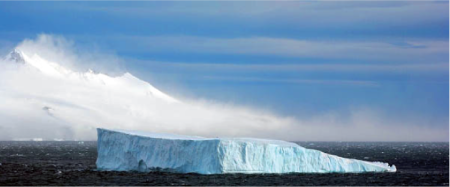| SEARCH |
-

Nov 17, 2015
Reflections on a three-decade legacy
The International Geosphere-Biosphere Programme (IGBP) will come to a close at t...
-
Nov 17, 2015
Use of and access to content on this website
Text and images produced by IGBP in house are free to use with appropriate credi...
-
Nov 12, 2015
Bella Gaia performance and panel discussion to mark IGBP's closure
A musical performance by Bella Gaia will celebrate the achievements and legacy o...
-

Towards Future Earth:
evolution or revolution?
During its three decades of existence, the International Geosphere-Biosphere Pro...
-
A personal note on IGBP and the social sciences
Humans are an integral component of the Earth system as conceptualised by IGBP. João Morais recalls key milestones in IGBP’s engagement with the social sciences and offers some words of advice for Future Earth.
-
IGBP and Earth observation:
a co-evolution
The iconic images of Earth beamed back by the earliest spacecraft helped to galvanise interest in our planet’s environment. The subsequent evolution and development of satellites for Earth observation has been intricately linked with that of IGBP and other global-change research programmes, write Jack Kaye and Cat Downy .
-
Deltas at risk
Around 500 million people worldwide live on deltas, but many of the world's deltas are sinking due ...
-
Climate change: the state of the science
A new data visualization released on the first day of the plenary negotiations at the UNFCCC’s clima...
-
Climate Change:
the State of the Science
Videos now online from the Stockholm public forum to mark the launch of the IPCC's climate report, 2...
Climate and human related drivers of biodiversity decline in Southeast Asia
Braimoh A K, Subramanian S M, Elliot W S and Gasparatos A

Southeast Asia hosts diverse biological resources and cultural milieus that are under different degrees of stress from various factors. This report highlights the key underlying economic, political and natural factors that contribute to biodiversity decline in the region, and provides specific policy directions that could help address the decline.
The report documents the salient biophysical characteristics of Southeast Asia, the current state of biodiversity and the attendant climatic and anthropogenic drivers of biodiversity decline in the region. Specifically, the role of international trade and the expanding oil palm plantations to meet increasing biofuel demands, as well as impact of urbanization and land tenure management systems and changing climatic patterns on biodiversity are clarified.
Policy responses required to augment and maintain a rich biodiversity status in the region are highlighted in the last section. There is a need for periodic assessments, monitoring and appropriate regulation mechanisms as well as the use of innovative financial mechanisms to enhance adaptive capacity. Investments in collaborative research and information sharing and educational initiatives to raise awareness and foster better ties between science and policy networks are a priority.

IGBP closed at the end of 2015. This website is no longer updated.
-

Global Change Magazine No. 84
This final issue of the magazine takes stock of IGBP’s scientific and institutional accomplishments as well as its contributions to policy and capacity building. It features interviews of several past...
-

Global Change Magazine No. 83
This issue features a special section on carbon. You can read about peak greenhouse-gas emissions in China, the mitigation of black carbon emissions and the effect of the 2010-2011 La Niña event on gl...
-
INTERGOVERNMENTAL PANEL ON CLIMATE CHANGE:
How green is my future?
UN panel foresees big growth in renewable energy, but policies will dictate just how big.
-
UK:
'The Anthropocene: a new epoch of geological time?'
Royal Society, Philosphical Transactions A


















